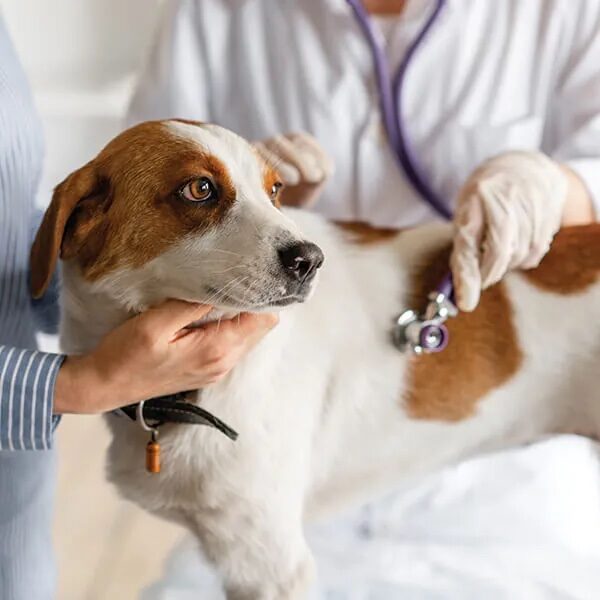Pet Urgent Care and Emergency Support in Asheville, NC
Understanding the difference between urgent and emergency care for your pet is important. Urgent care is needed when your pet has a health issue that should be checked out sooner rather than later, but it's not an immediate life-or-death situation. On the other hand, emergencies are critical and could potentially lead to severe, lasting problems or even threaten your pet's life.
Please be aware that Partners Animal Hospital Asheville is ready to handle pet emergencies during our normal operating hours. If your pet needs immediate attention, don’t hesitate to call us at (828) 333-7356, and our team will be on hand to help you swiftly. Should your pet experience an emergency after hours, we urge you to reach out to an emergency veterinary clinic listed below without delay.
If you suspect your pet needs urgent care, let us know at (828) 333-7356.

Identifying the Need for Urgent Care
Most urgent care situations involve your pet maintaining their usual routines in eating, bathroom habits, and behavior. Yet, they might be experiencing discomfort or symptoms that shouldn't wait for a regular checkup.

Here are instances when urgent care is advisable:
- Allergic reactions such as hives or facial swelling
- Ear infections
- Symptoms of congestion like coughing or a runny nose
- Eye issues including redness, swelling, or discharge
- Skin irritations and rashes
- Presence of fleas, ticks, or worms
- Changes in bathroom habits, like diarrhea or vomiting, especially if behavior changes
- Trouble urinating or blood present in urine
- Difficulty moving, limping
- Injuries such as cuts, bite marks, or open wounds
- Loss of appetite
- Ingestion of a foreign object (e.g., toys, bones)
- Unusual changes in behavior

Recognizing an Emergency
If your pet is experiencing any of the following, it constitutes an emergency, and you should contact Partners Animal Hospital Asheville or an emergency vet clinic immediately:
- Evident severe pain (crying out, reluctance to move, or a hunched stance)
- Suspected broken bones
- Uncontrolled bleeding
- Injuries from bites, burns, cuts, or punctures
- Snakebite incidents
- Incidents involving blunt force (e.g., being hit by a car or a fall)
- Symptoms of heatstroke such as excessive panting or difficulty breathing
- Open-mouth breathing in cats
- Bleeding from the nose, mouth, or rectum
- Coughing blood
- Inability to urinate or defecate
- Consuming toxic substances or medication overdose
- Sudden collapse or unconsciousness
- Extreme lethargy or disorientation
- Seizures
- Swollen, hard abdomen
- Persistent vomiting or diarrhea within 24 hours
Knowing when to seek urgent or emergency care for your pet ensures you can act swiftly in their time of need, providing them with the best chance of a quick and full recovery.

